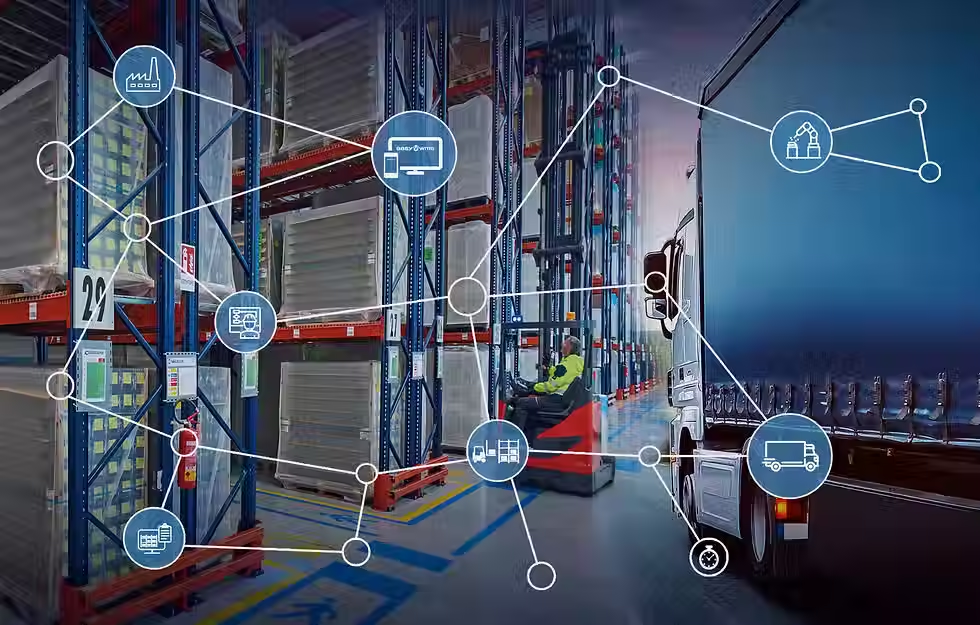How Artificial Intelligence is Revolutionizing Robotics in Warehouses
- jaimecampuzano8
- Oct 28, 2025
- 2 min read
Artificial intelligence (AI) and machine learning are redefining the future of modern warehouses. These technologies have evolved from support tools into the core of intelligent automation — where robots not only execute tasks but also learn, decide, and adapt in real time.
From Programmed Robots to Systems that Think

In the past, warehouse robots only followed predefined instructions. Today, thanks to AI, they can make autonomous decisions based on environmental data, identify obstacles, adjust routes, and prioritize tasks according to changing operational conditions.
Machine Learning: The Engine Behind Efficiency
Machine learning allows robots to improve their performance as they operate. AMRs (Autonomous Mobile Robots) use advanced algorithms to navigate complex environments, detect objects, map optimal routes, and work safely alongside humans.The result: faster processes, fewer errors, and enhanced safety.
Additionally, AI powers predictive systems that anticipate inventory needs, optimize picking routes, and improve coordination between robots and warehouse management software such as WMS, WES, or WCS — achieving total synchronization across warehouse operations.
Real Impact: Productivity and Precision

Implementing artificial intelligence in warehouse operations reduces the reliance on human labor for repetitive tasks, freeing personnel to focus on more strategic activities. This translates into higher productivity, lower costs, and more sustainable operations.
The Future: Human–Robot Collaboration
The next step is collaborative robotics, where humans and robots work together safely and efficiently. Equipped with vision sensors and AI algorithms, these “cobots” can analyze human movements, adapt to their environment, and perform tasks with millimetric precision.
The combination of artificial intelligence, robotics, and automation is radically transforming warehouse management.Companies that embrace these technologies will not only gain efficiency and speed but also be ready to lead in the new era of intelligent operations. The future of logistics won’t just be automated — it will be intelligent, autonomous, and collaborative. And that future has already begun.



Comments